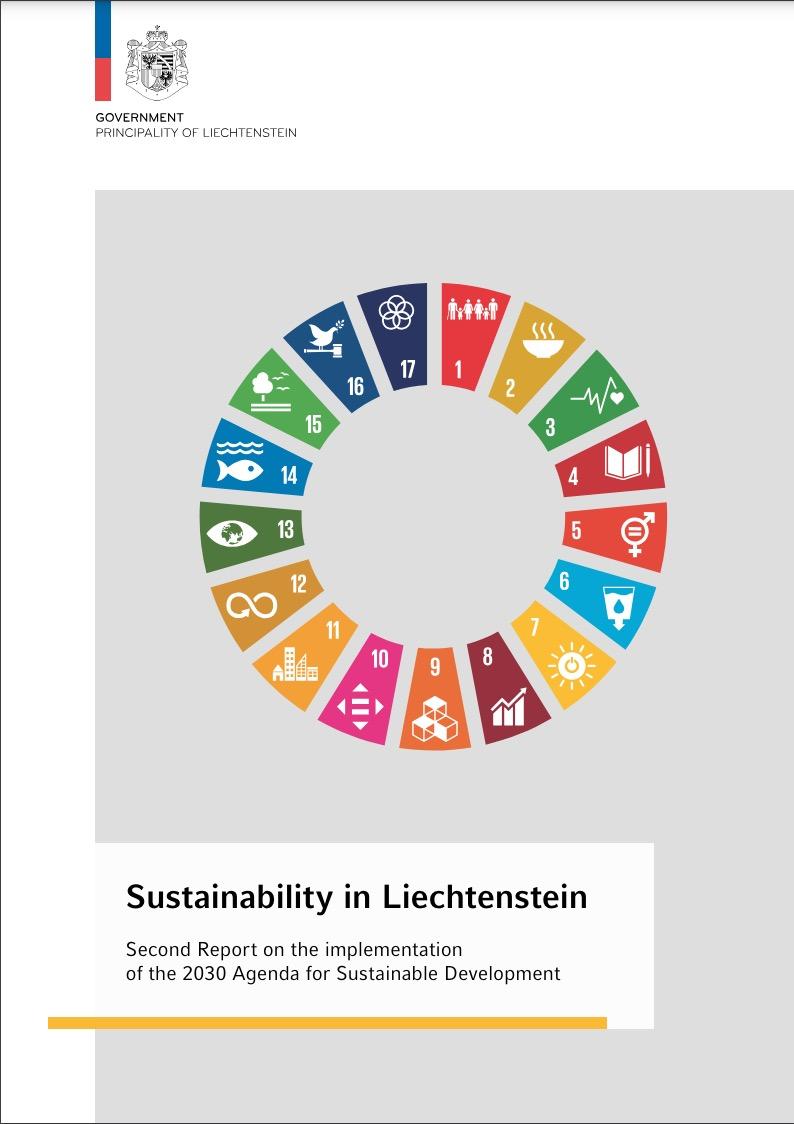Liechtenstein Voluntary National Review 2023
Shaping Liechtenstein together, sustainably and reliably - this is the Government's overarching goal for the legislative period 2021-2025. Sustainability is therefore at the very centre of the Government's current activities. The Government considers the implementation of the SDGs to be essential in preserving a liveable country and planet for future generations. The SDGs are more than an international obligation. Liechtenstein has a vested interest in their implementation. Overall, the implementation of the SDGs in Liechtenstein is developing positively. As the report shows, several SDGs are well implemented, in particular SDGs 1 (Poverty), 2 (Hunger), 3 (Health), 4 (Education), 6 (Water), 8 (Work), and SDG 16 (Peaceful Societies). The COVID-19 pandemic clearly demonstrated the strong crisis resilience of the state, the economy, and society, as well as the central importance of cross-border cooperation for crisis response. In order to increase policy coherence, the Government committed itself in 2022 to subject all new draft legislation and international treaties to an SDG analysis. The SDGs are thus a fixed component of all consultation reports as well as Government bills submitted to the Parliament. Through international solidarity, Liechtenstein provides support to developing countries in implementing the SDGs. The focus is on poverty reduction (SDG 1), access to education (SDG 4), food security (SDG 2), promotion of human rights and the rule of law (SDG 16), environmental and climate protection, and migration (SDG 10). Due to the crises and conflicts, expenditure on international solidarity has been significantly increased: Total ODA (Official Development Assistance) spending in 2022 increased by about 22% compared to 2018, reaching a new record of CHF 31.5 million. The private sector and civil society also show a high level of international solidarity. Particularly the philanthropy sector makes contributions that clearly exceed the public ODA expenditures. The guiding principle of Liechtenstein's engagement in international organizations is the conviction that international challenges can only be solved through multilateral cooperation. This is reflected in the commitment to more effective environmental and climate protection, but also in Liechtenstein's long-standing commitment to the protection and promotion of human rights, to combating impunity for the most serious violations of human rights, to international humanitarian law, and to the crime of aggression. There is growing public awareness on the importance of the SDGs or sustainable development in general. The drafting process for this report was accompanied by a consultation with various stakeholders. The high response rate underlines the great interest in the implementation of the SDGs.

